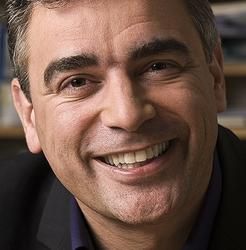
Learning from feedback
Formats for group feedback sessions
Ideally, feedback offers wonderful opportunities for improvement in the creative process. We get a sense of the effect of our creation on an audience, we receive new perspectives on our approach, and we get inspiration and encouragement for the work ahead. Everyone learns: the person receiving feedback, the person giving feedback, and, in a group setting, those observing the process.
Giving and receiving feedback well is not easy, however. All too often, those giving feedback fall into judgment or giving advice, and those receiving feedback become overwhelmed and defensive: we find it hard not to take it personally. In an educational setting, feedback and evaluation are usually mixed up, which leads to serious issues of openness and trust.
I have designed these feedback formats to break through our usual feedback patterns and to separate thinking from emotion. The formats are artificial on purpose, so that they force us to formulate feedback in a way which is helpful and enriching. These formats are based on and adapted from existing feedback and thinking techniques.
This material was developed between 2009 and 2011 for peer learning processes at the Amsterdam Film Academy and the DAS Master of Theatre programme of the Amsterdam University for the Arts. The best way to get a sense of how the formats work in practice is to watch A film about feedback, which chronicles group feedback sessions in Amsterdam and at the Theatre Festival in Goteborg, Sweden.
This online course consists of instruction videos for the formats and facilitator. I am making it available to encourage artists, teachers and everyone else interested in group feedback. Feel free to download and use the videos, powerpoint and handout in your own sessions. The material is made available under a Creative Commons attribution license, which means you can do it with what you want, as long as you acknowledge its source. Please be aware that these formats were developed specifically for group peer feedback sessions on work-in-progress – if your situation is different, you will need to adapt them accordingly. Good luck!
Your Instructor

Karim Benammar is a philosopher exploring paradigm shifts, meaning and value.
Of mixed Dutch-Algerian ancestry, Benammar grew up in Holland before going to study philosophy in England (BA, Sussex University, 1987) and the United States (Ph.D. Pennsylvania State University, 1993). Fascinated by Japan, he continued his philosophy studies at the University of Kyoto. He was Associate Professor at Kobe University from 1996-2002 and at Amsterdam University of Applied Sciences from 2003 to 2007.
Since 2002, he has focused on public philosophy, giving lectures and workshops to organisations and companies. He is connected to THNK School of Creative Leadership and The School of Life in Amsterdam.
He is author of Abundance (2005), Reframing - the art of Thinking Differently (2013) and editor of the collection Thinking about Money and Value (2014, in Dutch).
